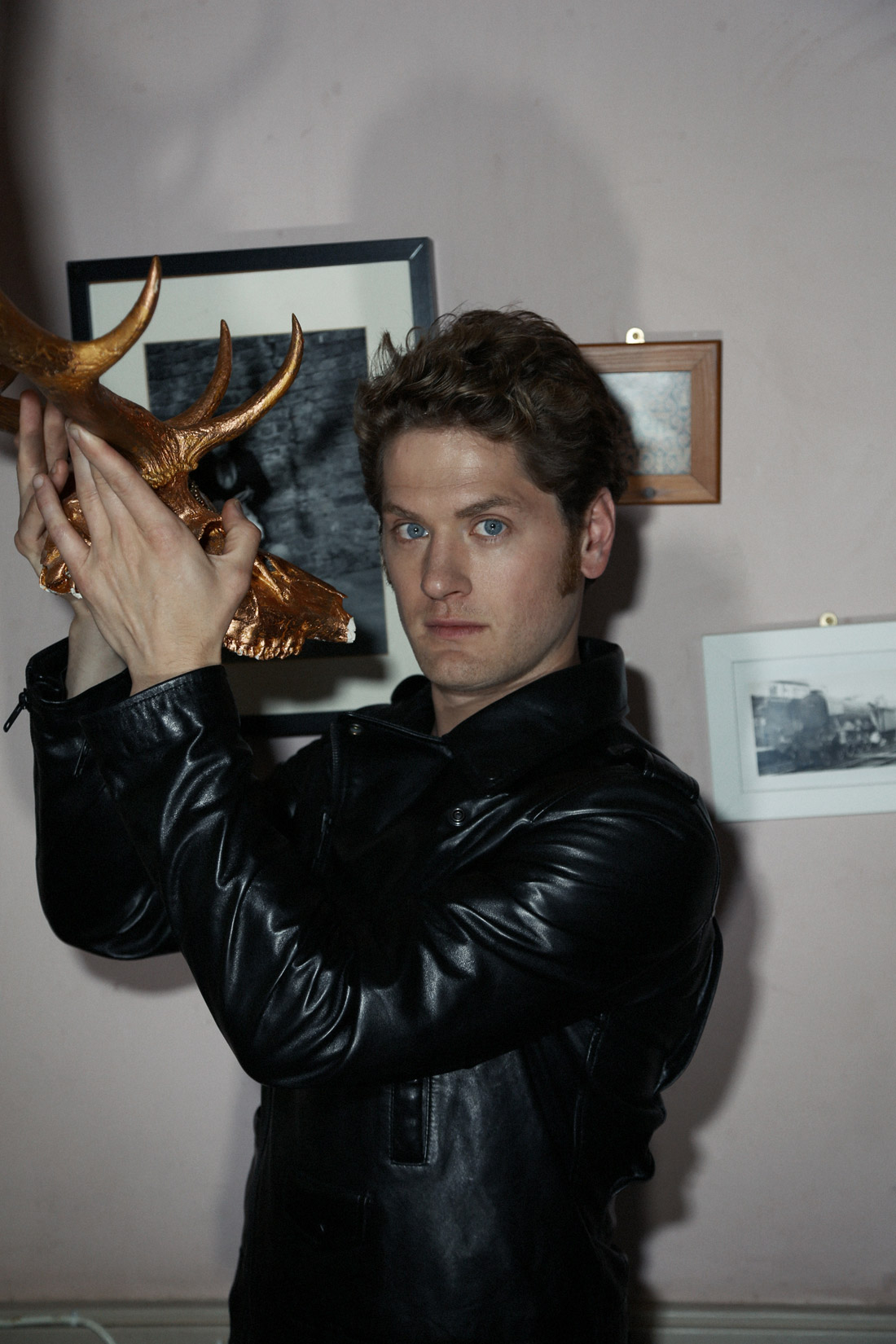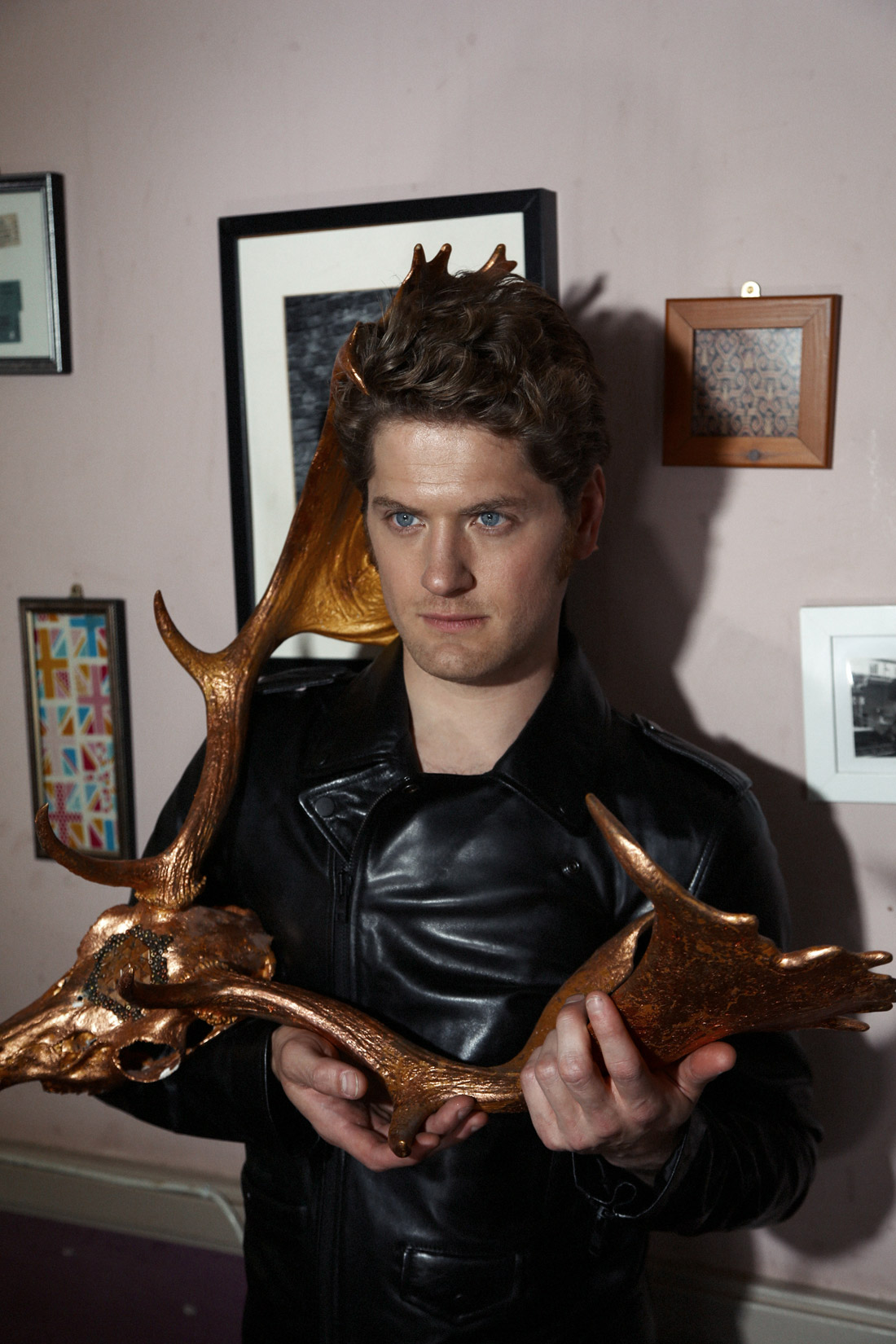American actor Kyle Soller’s deep respect for British actors drove him to move to London. A move he will probably never regret. Success awaited the award-winning fury star who has gained the respect of the industry. Kyle tells NUIT how he prepares for roles that are difficult to relate to.
You have three different soldier roles on the big screen this year; tell us about each project and how did you make each one fresh and different?
Monsters: Dark Continent is a film set 10 years after Gareth Edwards’ film, Monster. In it I play Inkelaar, one of four friends from Detroit who decide to go and fight the new monster infection in the Middle East. In the Keeping Room I play a Yankee scout called Henry in the last days of the American Civil War, and in Fury I play the medic attached to a crew of tank soldiers in the latter part of World War II. I suppose since each film is set in a completely different time period, in three very different wars, I didn’t have to add too much to make each of the characters unique from each other. The scripts and circumstance had already done the job for me.
In Monsters: Dark Continent you act against non-existing entities and landscapes which will be digitally inserted later on. How do you manage to make those emotions real? What do you react against?
Well I guess you’re already in an imaginative situation so maybe it’s not that different…except there’s nothing there! Tom Green, the director and Seb Barker, the visual effects supervisor, had briefed us all on exactly what the monsters looked like and what they were doing when we saw them. It was kind of weird flying over the Jordanian desert in a Black Hawk helicopter, being yelled at by the director who was harnessed to the floor with the D.O.P. to look ‘more scared!’ of these massive aliens supposedly roaming the ground below us.
How do you manage to empathise with cruel characters like Henry the southern soldier in The Keeping Room?
I think it’s easier to empathize when you can unpick why they are the way they are. In one sense, Henry fills the role of an impending evil which is sort of easy to play, I guess. I approached his experience from the psychology of a soldier with severe PTSD, someone who joined the army at a young age and has been exposed to the horrors of constant combat. General Sherman of the Union Army is quoted with saying, ‘war is cruel…the crueller it is, the sooner it will be over.’ with a leader like that, it’s no wonder someone would quickly lose all sense of the boy he was before the war.
How was the experience of shooting the film Fury, and does the task become more challenging when you’re on set with a star like Brad Pitt and a director such as David Ayer.
Really, really muddy! I loved it. Working with David was very challenging; he demands absolute truth and brutal reality, so it was exhausting but incredibly rewarding.
You’re currently filming a remake of BBC’s Poldark that deals largely with the after effects of war. Was it easier to approach with all the knowledge you gathered so far?
It was really interesting to work on Poldark after last year, especially as I got to move on from soldiers! But yes, approaching the aftermath of war from the experience of having been in three different ones did help a lot. One of the things we’re trying to examine in Poldark is the post-war effects on the Cornish community, but also how that period of extreme loss and hardship generates an outbreak of ‘war’ at home.
You have just been cast in The Hollow Crown for the BBC, again filming with an amazing cast and names such as Judi Dench and Benedict Cumberbatch. Following the success of the first, how important is it to bring these Shakespeare plays to the small screen and who do you play?
It’s so important to make Shakespeare available, relatable and interesting, especially to a new audience – that was absolutely the reason for the success of the first series. I play Clifford Suffolk in Henry VI Pt 2, a Lancastrian military commander. His father is killed by Plantagenet in Henry VI Pt 1 so in Pt 2 he’s on a revenge mission to murder Plantagenet and his entire family, which eventually leads to a showdown between Clifford and Richard.
You’re an American actor working in the UK and seem to be very embraced by the industry; how did you come to live and work here?
I’ve always had a deep respect for trained actors and British actors in particular. I just always found them incredibly interesting. so, while I was at college in the States, I decided I wanted to come over to England and get conservatory training. When I got into RADA, I left my degree, dropped everything and jumped on a plane.
You’ve played Tom Ripley on the stage. A character previously explored in such extreme, opposite renditions by Dennis Hopper, Matt Damon, Alain Delon and John Malkovich. What was your understanding of Ripley? How did you make him your own?
I read Patricia Highsmith’s Ripley novels to get a complete understanding of the character. In Phyllis Nagy’s play, she gives some back-story to Tom that isn’t really afforded in the film versions. He’s such an interesting character because he has an acute, painful self-awareness but also this brilliantly charismatic con-man ability. He’s someone who knows deep within his being that he will be friendless and alone for the rest of his life. I thought all his obsessions came from a place of pain and loneliness growing up with his aunt, where he wasn’t afforded much at all. In the books, Highsmith mentions Tom envying people with self-pity. Possessions and the act of possessing are things important to Tom because they make him feel alive but it’s quality, not quantity. I wish I was like that.
It is now quite customary to stage Edward II as a gay play. How did you approach bromance in a period piece?
I love a good bromance and so did the Elizabethans! We approached Edward and Gaveston’s relationship as one where they have an insatiable need and appetite for each other. Their relationship is actually the only one in the play that is based on genuine love, uncorrupted by greed and power. But then because their love is so intense and obsessive, they’re the victims of their own desire and need. With the physical relationship….well, basically, I had to do quite a few stripteases for Edward in rehearsal.
Fury is currently in cinemas now. Monsters: Dark Continent and The Keeping Room will be released early 2015.
Photography & interview by Andrea Vecchiato
Grooming by Amanda Bell
Styling by Crystal Deroche
Clothes: leather jacket by Paul & Joe
Shot on location at the Star of Kings Pub, King’s Cross.


